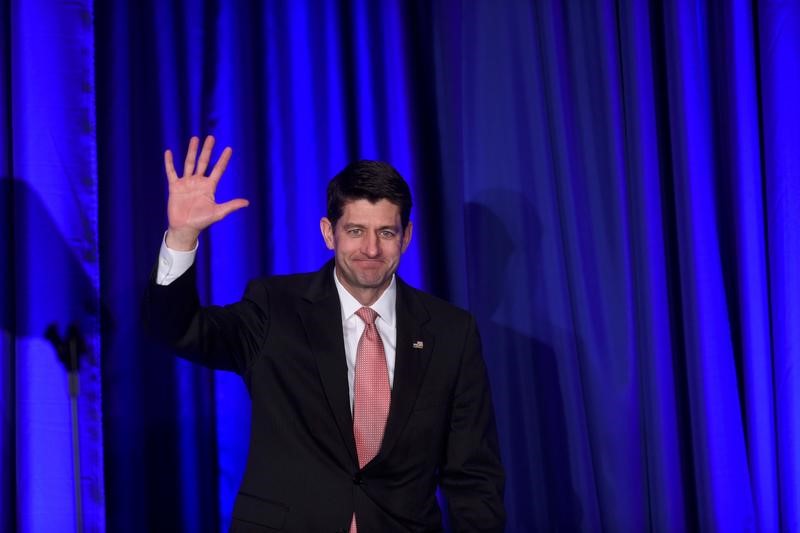By David Morgan
WASHINGTON (Reuters) - Republicans in the U.S. House of Representatives are considering possible changes to the design of their controversial border adjustment tax proposal to accommodate industries worried about being harmed by the provision, a top lawmaker said on Friday.
The measure, a centerpiece of the House Republican tax reform blueprint backed by Speaker Paul Ryan, is intended to encourage investment and manufacturing in the United States. But it faces mounting pressure from U.S. retailers, oil refiners and automakers who fear it could result in higher prices for consumer goods including gasoline.
Major U.S. exporters on Thursday threw their support behind a border tax, but President Donald Trump has sent mixed signals and some U.S. Senate Republicans question whether it would pass muster under international trade rules.
"We are listening carefully and exploring a number of ideas on both design and the transition of this provision to accommodate some of the concerns, valid concerns," House Ways and Means Committee Chairman Kevin Brady told a conference on tax issues.
"I'm confident ... that the design of the border adjustability and the transition of it will allay those concerns," he added without providing details.
He previously said the committee would look at transition rules but has not suggested possible design changes until now.
The Texas Republican, whose panel is working on tax reform legislation, is not considering product or industry exemptions but said the committee is engaged in discussions with industries including import-dependent oil refiners.
The border adjustment proposal would exempt U.S. corporate export revenues from tax but impose a 20 percent levy on imports by preventing U.S. companies from deducting import costs from their taxable income.
Import-dependent companies say the sweeping change could hurt their businesses and customers.
"Their concerns about consumer impacts or tax impacts, we don't want those either," Brady said.
Brady said the policy would tax all products sold in the United States equally while matching the export tax approach of U.S. trading partners.
He acknowledged that the change could be phased in over time to help smooth the transition but denied that the proposal would violate international trade rules by penalizing imports or subsidizing exports.
Business lobbyists have suggested a number of changes, from a nominal tax to compensate import-dependent businesses to an import tax rate that would vary by country of origin to match the taxes U.S. products face abroad.

"We know where we want to go and we're going to listen to all ideas. But we're going to end up with a tax code that taxes products at the same equal rate in the United States," he said.